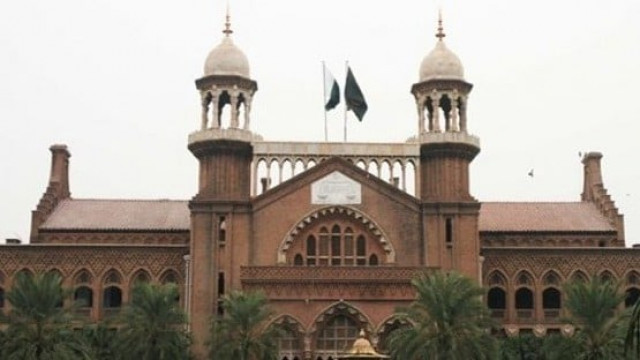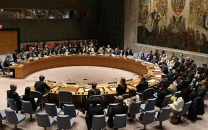Is judicial lifeline enough for PTI MNAs’ return to NA?
Experts say parliament will ‘not be pleased with LHC’s decision’

The recent court ruling suspending the Election Commission of Pakistan’s (ECP) de-notification of 72 Pakistan Tehreek-e-Insaf (PTI) MNAs has paved the way for their return to parliament but some experts believe that the National Assembly will see the decision as interference in its internal matters.
Though the court’s decision has cleared the path of the PTI MNAs’ return to parliament, it has cast a shadow on the fine line between judicial intervention and parliamentary autonomy.
Amid a legal tug of war, the judicial lifeline is being seen as another attempt to rewrite the rules of the assembly.
On Friday, the Lahore High Court suspended the de-notification of 72 PTI MNAs by the ECP and told them to appear before NA Speaker Raja Pervaiz Ashraf in person to have their resignations withdrawn.
The court had also directed the speaker to reach a decision on the matter after listening to the stance of the PTI MNAs again.
LHC’s Justice Shahid Karim was hearing the petitions filed by 72 PTI MNAs, requesting the court to set aside the notifications issued by the NA speaker through which their resignations were accepted as well as the one by the ECP in accordance with which they were de-notified and their seats declared vacant.
The PTI lawmakers had resigned en masse from the lower house of parliament following the ouster of PTI chief Imran Khan as the premier in April last year. However, after repeatedly asking the speaker to accept their resignations in February this year, several PTI MNAs requested the LHC to set aside the two notifications so that they could return to the assembly.
Renowned political expert Zaigham Khan thinks that the NA speaker will not allow the PTI MNAs to come back to the assembly because, firstly, he has the absolute authority on accepting the resignations and, secondly, allowing them back in the assembly in the current situation doesn’t suit the government.
“I don’t think parliament [NA] will accept the court’s decision as they will see it as an interference in its internal matters,” Zaigham said.
The political expert said that Article 64 deals with the issue of resignations, adding that Article 64(1) states: “A member of Majlis-e-Shoora (parliament) may, by writing under his hand addressed to the speaker or, as the case may be, the chairman resigns his seat, and thereupon his seat shall become vacant.”
He added that Article 64 (2) adds: “A house may declare the seat of a member vacant if, without leave of the house, he remains absent for 40 consecutive days of its sitting.”
Zaigham said that the PTI members have fulfilled both the conditions as they resigned as well as remained absent for over 40 days from the NA.
On top of that, he said, the PTI members openly spoke about it, insisting that the speaker should accept their resignations.
While referring to the Rules of Procedure and Conduct of Business in NA 2007, the expert said that Rule 43 (1)(resignation of seat) states that a member under Clause (1) of Article 64 may, by writing under his hand addressed to the speaker, resign from his seat.
Rule 43(2)(a) adds that if a member hands over the letter of resignation to the speaker personally and informs him that the resignation is voluntary and genuine and the speaker has no information or knowledge to the contrary. Or, he continued, Rule 43(2)(b) says that the “speaker receives the letter of resignation by any other means and he, after such inquiry as he thinks fit, either himself or through the National Assembly Secretariat or through any other agency, is satisfied that the resignation is voluntary and genuine, the speaker shall inform the assembly of the resignation”.
Zaigham said that courts have no authority in such matters of parliament, saying the court can’t direct the speaker to accept or not accept resignations. As the resignations have already been accepted by the NA speaker, “I think there is no way parliament or the speaker can accept the court’s decision in this particular situation”.
He maintained that things would continue to go back and forth because the court can’t say much more than what it has already said.
“I don’t think parliament will be pleased by this,” he concluded.
Pakistan Institute of Legislative Development and Transparency (Pildat) President Ahmed Bilal Mehboob said that there will be no smooth sailing because of two reasons: the court decision is weak and the NA rules give the speaker complete authority to accept or reject resignations.
Referring to the rules, the Pildat chief said that the speaker only has to confirm genuineness of the resignations and see that there was no coercion. He said that there is no restriction on the speaker as to how he should satisfy himself in this regard.
Referring to the court’s direction that the speaker should call the PTI MNAs twice, Mehboob questioned why the speaker can’t call the PTI members thrice or more than that; why should he only call them twice?
“The court judgment is like rewriting the NA rules,” Mehboob said, adding the court can’t direct a sovereign body to do what is not provided in the rules.
“The LHC decision is incorrect,” he said. “It is court’s interference in parliamentary matters.”
The only other way for the PTI MNAs’ return to parliament is that if the ruling alliance and the PTI reach a deal through negotiations.
However, he recalled that talks had ended in a stalemate after Imran Khan vetoed the process and insisted that the elections must be held forthwith, saying things have also changed after the May 9 incidents.



















COMMENTS
Comments are moderated and generally will be posted if they are on-topic and not abusive.
For more information, please see our Comments FAQ